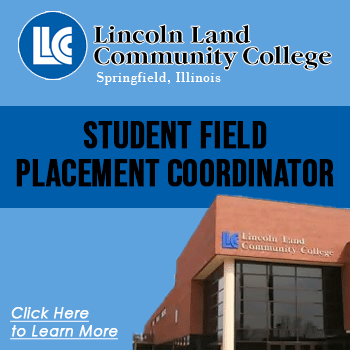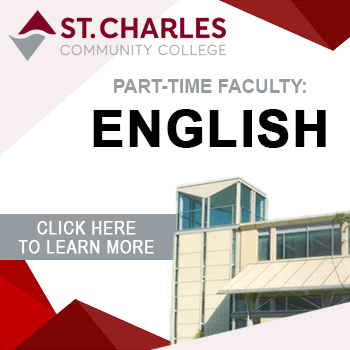This job has Expired

Division Chief, Pediatric Hospital Medicine
Job Description
Emory University is a leading research university that fosters excellence and attracts world-class talent to innovate today and prepare leaders for the future. We welcome candidates who can contribute to the diversity and excellence of our academic community.
Children’s Healthcare of Atlanta (Children’s) and Emory University School of Medicine (Emory), Department of Pediatrics are seeking a visionary and collaborative physician leader with a strong clinical and academic foundation to serve as Chief of one of the largest Divisions of Pediatric Hospital Medicine (PHM) in the country.
The Division Chief is a visible, inspiring leader with a clinical practice presence to foster credibility and to develop an appreciation for hospital medicine operations and its clinicians. This position requires an individual who has a passion for providing outstanding care, a desire to improve systems to maximize efficiency, the leadership to engage clinicians in team-based care while supporting research, education, and advocacy. The Division Chief will craft the long-term vision for hospital medicine at Children’s and Emory while advancing the key mission areas to engage and inspire the faculty to reach these goals while holding the team accountable.
The Division Chief will serve as the primary physician leader for general inpatient pediatric care at the Egleston/Arthur M. Blank and Scottish Rite campuses, providing strategic leadership and oversight of quality, safety, and clinical operations. They will design care delivery advancing care consistency, efficiency, and a culture of excellence in PHM. This leader will be dedicated to the implementation of professional and clinical care standards and team-based care driven by evidence-based care guidelines.
As the leader of PHM, the Chief will be responsible for clinical program development, faculty recruitment, workforce development, the growth and advancement of research, scholarly activity, and educational excellence both within the PHM Division and beyond.
Reporting Relationships
Reports To:
• Pediatrician-in-Chief/Chair, Department of Pediatrics
Key Relationships:
• Pediatrician-in-Chief
• Surgeon-in-Chief
• Chief Medical Officer
• Department of Pediatrics Division Chiefs
• Director, Physician Practice Operations
• Practice Manager, Physician Practice Operations
Principal Duties and Responsibilities
Clinical
• Oversees the delivery of clinical services in the Division’s areas of practice and develops resources (including personnel and programs) related to these services in conjunction with the respective clinical directors or hospital administrators.
• Assures appropriate and continuous coverage of inpatient and consultative services at all relevant clinical sites.
• Assures participation of Division personnel in quality improvement, safety, and patient satisfaction initiatives.
• Builds a high quality, well-developed network of cohesive physicians. Foster positive relationships with other clinicians including community and referring clinicians.
• Assures compliance with all relevant Division and hospital policies and procedures. Assures compliance with all medical record documentation requirements and appropriate billing procedures.
• Ensures that the Division is responsive to the needs of those it serves clinically (patients, families, referring physicians, other Divisions/ Departments, etc.).
• Assumes responsibility to ensure the division and each attending physician achieves clinical productivity (wRVU) targets.
• Serves as a physician champion and leader for the provision of quality healthcare and clinical performance excellence.
• Ensures consistent standards of practice in all practice locations. Leads in identifying mechanisms to meet external regulations around quality of care and service.
Administrative
• Fosters a collegial environment that supports the successful recruitment, retention, and development of outstanding faculty and staff.
• Defines and communicates expectations for faculty members, providing them with the support they need to meet these expectations, and reviews their performance in individual meetings at least annually using the Career Development Conference Report. Understands the University promotion and tenure process and its requirements and mentors faculty members—or arranges mentoring—accordingly.
• Assigns clinical, administrative, educational, service, and research roles to the faculty in ways that promote the Division and Department while bearing responsibility for Divisional productivity and academic performance.
• Fosters excellent communication, teamwork, and cooperation in carrying out the scholarly, educational, and clinical missions of the Division and the Department.
• Provides adequate Divisional infrastructure for faculty and staff to carry out their responsibilities.
• Demonstrates accountability for financial performance and stewardship of resources. Develops case for support to achieve fundraising targets and collaborates with business partners to drive optimum financial performance and viability.
• Develops and manage the Divisional budget effectively, productively, equitably, and efficiently to support the missions of the Division and the Department.
• Identifies initiatives and priorities and allocates resources to advance these initiatives.
• Supports faculty in attracting, leveraging, and retaining sponsored research and grant dollars.
• Manages the Division’s capital assets, including both current assets and plans for replacement and renewal.
• Establishes governance mechanisms that ensure participation in the academic affairs of Children’s and Emory. Holds regular meetings to fully involve members in the organization and executive leadership. Communicates key Departmental, university, medical group, and hospital information to executive leadership.
• Provides leadership at the local, regional, state, national and international levels in clinical and academic matters.
Research
• Encourages, guides, and supports a comprehensive vision for research activities across the enterprise. Develops the goals and the structure necessary to reach the vision.
• Ensures responsible and compliant conduct of research.
• Fosters cooperative and interdisciplinary research activities with other Divisions, Departments, and schools and with community physicians.
• Supports faculty in attracting, leveraging, and retaining sponsored research grants and contracts
• Supports and promotes a research environment that involves trainees (including students, residents, fellows, advanced practice professionals) and attendings.
• Oversees and manages the research funds, equipment, facilities, and personnel assigned to the Division or its investigators. The impact of the Division’s research program will be assessed by peer-reviewed publications, by presentations at scientific meetings, and by growth in extramural funding.
• In collaboration with Children’s and Emory, grows philanthropy to support the generation of research dollars.
Teaching/Education
• Ensures that the Department of Pediatrics maintains the highest standard in training medical students, residents, and fellows.
• Creates, supports, facilitates, and implements the educational programs of the Division, including curricula for medical student, resident, and fellow training; and for graduate and postdoctoral training-- to meet or exceed national and accreditation standards.
• Develops a collaborative vision, with a track record for successfully implementing new initiatives that meet the challenges of academic medicine and clinical care.
• Ensures academic programs meet external regulations and accrediting standards.
• Builds collaborative partnerships within Children’s, Department of Pediatrics and across Emory to achieve top performance.
• Conducts Divisional and programmatic reviews and engages faculty to carry out the educational programs.
• Evaluates the performance of faculty, students, and graduates ensuring that goals and professional standards are met or exceeded.
• Serves as a role model and mentor for Division faculty members and ensure that external mentors are provided for each individual.
Child Advocacy
• Develops and communicates a vision and overall direction for pediatric health that aligns all entities across Children’s. Presents pediatric health strategy and updates to Children’s & Emory’s Executive Teams, and Boards of Trustees as appropriate.
• Takes initiative to identify, conceive, implement, evaluate, and refine new methods of health care delivery, especially wellness/preventative medicine initiatives that will impact the organization and community.
• Guides ongoing and emerging priorities and works with faculty and leaders to develop a vision that encompasses other areas of growth.
• Partners in fundraising endeavors, contributing to new and existing partnerships and philanthropic opportunities.
• Facilitates growth to meet the demands and needs of the Metro Atlanta community and support the expansion of regional networks and partnerships. Helps Children’s fulfill both local and global responsibilities.
Candidate Qualifications
The ideal candidate will have the following credentials:
Education
• Doctor of Medicine (MD/DO) from an accredited school of Medicine
• Board certified/board eligible in Pediatric Hospital Medicine. ABP Pediatric Hospital Medicine Board Certification is preferred.
• Eligible for medical licensure in Georgia. Meet eligibility requirements for credentialing as part of Children’s professional staff.
Experience and Skills
• Passion for patient care and service including the ability to lead service improvement efforts by example.
• National reputation of excellence in clinical care and/or education and research.
• An experienced academic and operational leader with vision, enthusiasm, and executive presence, with a track record as a unifier. Can successfully galvanize a group to one vision.
• Recognized clinical experience and clinical operations/management experience with the capacity to align/engage physicians and clinicians.
• Administrative or leadership roles in a pediatric hospital setting.
• Experience building and maintaining partnerships between clinical and non-clinical stakeholders.
Personal Characteristics
• A transformational and strategic leader who can establish an inspiring vision, who is committed to growing and developing clinicians, faculty, staff, and trainees, achieving prestige through the success of the program and its members
• Continually demonstrates excellence in all communications with high energy, enthusiasm, and a professional demeanor. Clearly conveys information and ideas through a variety of media to individuals or groups in a manner that engages the audience and helps them understand and retain the message.
• A confident manager with business skills who knows how to achieve challenging performance goals in complex, evolving environments, including balancing his or her own strengths and weaknesses with complementary associates.
• A mentor with strong coaching skills to nurture the development of team members.
• A teacher who enjoys interchange with students, residents, and faculty.
• An individual of the highest integrity with high levels of energy, maturity, and flexibility and a reputation for fairness and idealism.
• An approachable and enthusiastic leader who is accessible and visible and who can engage the community for philanthropic support.
• Identifies and understands issues, problems, and opportunities; compares data from different sources to draw conclusions; uses effective approaches for choosing a course of action or develop appropriate solutions; takes action that is consistent with available facts, constraints, and probable consequences.
• Maintains advanced knowledge of medicine, healthcare, and the functions over which this position provides senior-level leadership.
• Broad, visionary thinker. Keeps the organization’s vision and values at the forefront of decision making and action, while proactively seeking opportunities with medical staff to lead process improvement in a positive, collaborative manner.
Key Leadership Competencies
• History of successful team development empowering high performance through visionary leadership, delegation, and operational excellence.
• A role model of personal and professional integrity and a visible leader.
• Demonstrates aptitude for resolving conflict and problem solving.
• A strong communicator and diplomat who inspires and effectively communicates with wide and diverse audiences at all levels of the organization and externally.
• An ability to inspire and align faculty and staff, both those within the Division and those with whom the Division interacts.
Expectations of Leadership
Together, Children’s and Emory are a preeminent pediatric hospital medicine in advancing clinical, educational, and scholarly activities with the goal of being a top tier program in all areas. To that end, the Division Chief will have made significant progress in the following areas within the first 18 to 24 months of their tenure:
• Establish themselves as a credible, trusted and highly collaborative clinical team leader among the medical staff and administrative leaders at Children’s and Emory through performance as a clinician and a physician leader. It is essential this leader be visible and gain credibility quickly.
• Evaluate the current clinical operations model, provide recommendations working with administration to improve system performance, quality, service excellence, family experience and more efficient ways to meet patient care needs. Consistent performance of care delivery and clinical outcomes will be achieved.
• Define vision and strategies in alignment with Children’s, program development, identifying which services are offered, identifying optimal distribution of services, resource prioritization, and routinely assessment the needs for the hospital medicine program, balancing missions of patient care, research, and teaching.
• Prepare the Division's delivery model, resources and workforce plan required for the opening of Arthur M. Blank Hospital in 2024 which will include a larger pediatric care footprint with one delivery model across the enterprise.
• Establish a “team care” culture within all aspects of Children’s services and initiatives strengthening the partnership of physicians, advanced practice professionals, allied health professionals and staff in delivering outstanding patient centered care.
• Advance clear communication channels with staff within the Division, leaders, campus medical/surgical directors, and program medical directors resulting in alignment, trust, accountability, and collaborative working relationships in the pursuit of inter-Divisional collaboration and esprit de corps.
• Consistently improve the timeliness and efficiency of patient evaluation and admission procedures to optimize patient care throughput across the enterprise.
• Maintain a high level of scholarly achievement in with a notable increase in clinical research, publications, and national presence.
• Continue to invest in the effective recruitment of fellows and attending physicians, set a favorable tone regarding programmatic strengths and stature, and ensure that we continue to attract the highest caliber trainees.
• Create professional development plans for individual faculty providing access to mentorship and alignment to key mission areas. Focus on the retention and development of attending physicians.
Children’s Division of Hospital Medicine
In 2021, Children’s Division of Hospital Medicine physicians cared for more than 44,500 patients across our system. The Division is currently comprised of 52 core (permanently employed) physicians and a large pool of active PRN physicians. We experience an average daily census of 126 patients system wide.
The hospitalist program at our Egleston Hospital was started by Joseph A. Snitzer, III, in 1983, and was one of the first of its kind. All pediatric hospitalists are faculty members of Emory University's Department of Pediatrics and have clinical privileges at Children's Healthcare of Atlanta. The team specializes in delivering and coordinating the clinical care of hospitalized children, but also has responsibilities in medical education, quality improvement, discharge planning and clinical research.
The hospitalist program at our Scottish Rite Hospital was started in the spring of 1992 by Dr. Richard Kenny and Dr. Dennis Sullivan. At that time, most patients admitted at Scottish Rite were cared for by their own private physicians. Therefore, the hospitalist program was initially developed as a consultative service to assist these physicians. It was also designed to provide inpatient care for patients with a primary care physician unable to care for them during a hospital admission, such as physicians outside the Atlanta metropolitan area or family practitioners without privileges at Scottish Rite.
The hospitalist program at our Hughes Spalding Hospital is managed separately by Emory University’s Division of General Pediatrics and Adolescent Medicine. Division of Hospital Medicine faculty provide clinical coverage at Hughes Spalding. The Division Chief will work collaboratively with the Division Chief of General Pediatrics and Adolescent Medicine to ensure patient care and quality goals are achieved.
Over the next five years, around 1,500 contacts were made in offices and clinics all over Georgia educating clinicians that Scottish Rite had grown beyond its initial role as an orthopedic facility and that a hospitalist service was available to care for their patients during their hospital stay.
In addition to staffing the Egleston and Scottish Rite inpatient units 24 hours a day, seven days a week, our hospitalists provide consultations to surgical and other subspecialty teams who require assistance. Our goal is to create a partnership between our team of hospitalists and community physicians to facilitate transition of care.
Our Pediatric Hospitalist fellowship program was started in 2006. The program is accredited by the Accreditation Council for Graduate Medical Education (ACGME) and offers a two-year training program for care of hospitalized children. The program also includes training and experience in clinical, epidemiological, and quality research with mentorship both within and external to the PHM Division. Fellows have opportunities to pursue research projects through established collaborations with the Centers for Disease Control & Prevention, Emory’s Rollins School of Public Health, as well as through collaborations with the Divisions in the Department of Pediatrics and School of Medicine.
The PHM faculty educate residents from the Emory University pediatric residency program, the Morehouse School of Medicine pediatric residency program, and residency programs within the Atlanta metropolitan region.
Procedure for Candidacy
Qualified candidates should complete the online application and upload a CV. Inquiries should be sent to to Mark Lotz, Children’s Director of Executive and Physician Recruiting, via email at mark.lotz@choa.org.
Additional Information
The Emory + Children’s Pediatric Institute is an affiliation between Emory University and Children’s Healthcare of Atlanta that is improving the lives of children in Georgia and beyond. The Pediatric Institute combines the unique strengths and resources of each institution in support of our three-part academic missions of providing outstanding clinical care, conducting innovative basic science discovery and clinical research, and coordinating exceptional education of the future healthcare workforce. Our physicians, researchers, and educators have created a model where leadership, commitment and quality are fundamental components of success. Together, we are transforming pediatrics by achieving new levels of clinical excellence—driven by research, teaching and wellness. We look forward to our future together.
To ensure the safety of our campus community, the COVID-19 vaccine is required. For more information on the University and Hospital policies and potential exemptions, please see our website.
Emory University is dedicated to providing equal opportunities and equal access to all individuals regardless of race, color, religion, ethnic or national origin, gender, genetic information, age, disability, sexual orientation, gender identity, gender expression, and veteran's status. Emory University does not discriminate in admissions, educational programs, or employment on the basis of any factor stated above or prohibited under applicable law. Students, faculty, and staff are assured of participation in University programs and in the use of facilities without such discrimination. Emory University complies with Executive Order 11246, as amended, Section 503 of the Rehabilitation Act of 1973, the Vietnam Era Veteran's Readjustment Assistance Act, and applicable executive orders, federal and state regulations regarding nondiscrimination, equal opportunity and affirmative action. Emory University is committed to achieving a diverse workforce through application of its affirmative action, equal opportunity and nondiscrimination policy in all aspects of employment including recruitment, hiring, promotions, transfers, discipline, terminations, wage and salary administration, benefits, and training. Inquiries regarding this policy should be directed to the Emory University Department of Equity and Inclusion, 201 Dowman Drive, Administration Building, Atlanta, GA 30322.
Emory University is committed to providing reasonable accommodations to qualified individuals with disabilities upon request. To request this document in an alternate format or to request a reasonable accommodation, please contact the Department of Accessibility Services at 404-727-9877 (V) | 404-712-2049 (TDD). Please note that one week advance notice is preferred.
Not ready to apply? Connect with us for general consideration!
*Please mention you saw this ad on AcademicJobs.*




